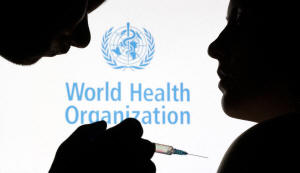Omicron poses 'very high' global risk but data on severity limited - WHO
 Send a link to a friend
Send a link to a friend
 [December 13, 2021]
By Stephanie Nebehay and Ludwig Burger [December 13, 2021]
By Stephanie Nebehay and Ludwig Burger
GENEVA (Reuters) - The Omicron coronavirus
variant, reported in more than 60 countries, poses a "very high" global
risk, with some evidence that it evades vaccine protection but clinical
data on its severity is limited, the World Health Organization says.
Considerable uncertainties surround Omicron, first detected last month
in southern Africa and Hong Kong, whose mutations may lead to higher
transmissibility and more cases of COVID-19 disease, the WHO said in a
technical brief issued on Sunday.
"The overall risk related to the new variant of concern Omicron remains
very high for a number of reasons," it said, reiterating its first
assessment of Nov. 29.
It added there were early signs that vaccinated and previously infected
people would not build enough antibodies to ward off an infection from
Omicron, resulting in high transmission rates and "severe consequences".
It remains unclear for now whether the new lineage is also inherently
more contagious than the dominant Delta variant, which would fuel its
spread further, WHO warned.

Corroborating the WHO's assessment, University of Oxford researchers
published a lab analysis on Monday saying that two two-dose COVID-19
vaccine regimens do not induce enough neutralising antibodies against
Omicron.
While the antibody defences from courses from AstraZeneca vaccine and
BioNTech/Pfizer have been undermined, there is hope that T-cells, the
second pillar of an immune response, can at least prevent severe disease
by attacking infected human cells.
The Oxford researchers said there was currently no evidence of Omicron
causing more severe disease.
[to top of second column]
|

People pose with syringe with needle in front of displayed World
Health Organization (WHO) logo, in this illustration taken December
11, 2021. REUTERS/Dado Ruvic

Pfizer and BioNTech have said two shots of their vaccine may still
protect against severe disease, because its mutations were unlikely
to evade the T-cells response.
The WHO cited some preliminary evidence that the number of people
getting reinfected with the virus has increased in South Africa.
While early findings from South Africa suggest that Omicron may be
less severe than the Delta variant - currently dominant worldwide -
and all cases reported in the Europe region have been mild or
asymptomatic, it remained unclear to what extent Omicron may be
inherently less dangerous, it said.
"More data are needed to understand the severity profile," it said.
"Even if the severity is potentially lower than for the Delta
variant, it is expected that hospitalisations will increase as a
result of increasing transmission. More hospitalizations can put a
burden on health systems and lead to more deaths."
Further information was expected in coming weeks, it added, noting
the time lag between infections and outcomes.
(Reporting by Stephanie Nebehay in Geneva, Ludwig Burger in
Frankfurt, Editing by William Maclean, Robert Birsel)
[© 2021 Thomson Reuters. All rights
reserved.] Copyright 2021 Reuters. All rights reserved. This material may not be published,
broadcast, rewritten or redistributed.
Thompson Reuters is solely responsible for this content.
 |